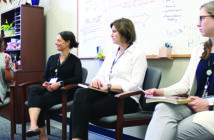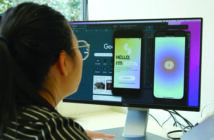Doctors and researchers share advice, data, and fun facts about pregnancy and babies in three helpful new guides.
Pregnancy and parenthood are exciting yet challenging times, and don’t self-help authors know it: bookstore shelves groan under the countless titles that address every moment from conception to empty nest.
Few are written by doctors or scientists, though, which makes three new books, each by Brown alumni or faculty, welcome additions to the genre. The authors draw on their research and clinical experience to address common conundrums of pregnancy and parenthood, with the busy, nonscientific reader in mind. Formatted in digestible chunks for short attention spans, these books don’t have to be read cover to cover—but as indispensable reference guides, they’ll earn a spot on every new parent’s nightstand.
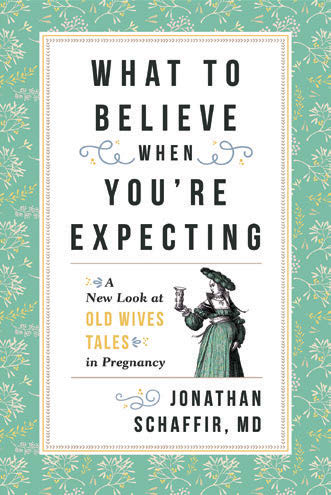
Pickles and Ice Cream and Other Fables
What to Believe When You’re Expecting: A New Look at Old Wives’ Tales in Pregnancy, by Jonathan Schaffir, MD, Rowman & Littlefield
Parents have been trying to choose the sex of their baby for millennia, and to this day they’re willing to believe some pretty strange things will do the trick—like eating sugar to conceive a girl, or sleeping on the right side to get a boy.
“There’s always going to be a 50 percent chance that someone is right, and so [these superstitions]keep getting repeated over and over,” says Schaffir, whose first book explores pregnancy myths through the ages and what science has to say about them.
Schaffir, who earned his bachelor’s and medical degrees at Brown, has been collecting “old wives’ tales” over his more than 20 years in practice as an obstetrician/gynecologist in Ohio. As patients kept coming to him with the same stories, he says, he started wondering if there might be any truth to them.
“Something I hear very, very frequently: ‘oh, this baby must have a lot of hair because I have so much heartburn,’” he says. “There’s one study that actually does show some evidence that there’s an association. I don’t know that I completely buy that explanation, but there you have it, someone actually looked at that.”
Some of the myths Schaffir examines are centuries old, like drinking beer to boost milk supply (it’s actually counterproductive, he writes), or strenuous exercise and bumpy car rides to jostle an overdue baby out of the womb (given the risk of internal bleeding and worse, he doesn’t recommend it).
Other advice has been popularized online. Eating spicy food to induce labor may have some basis in fact, Schaffir writes, though a woman who’s past her due date “might go into labor regardless of how many jalapeños she adds to her plate.” Meanwhile no studies have borne out the alleged benefits of eating the placenta, a relatively recent phenomenon.
The folklore Schaffir reviews is entertaining and fascinating, especially when there’s a glimmer of truth. Nonetheless, he cautions, “I’m not recommending that people actually use any of these methods, because I don’t think safety has been well established.”
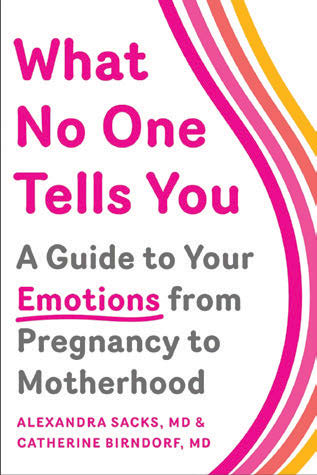
The ‘Bliss Myth’
What No One Tells You: A Guide to Your Emotions from Pregnancy to Motherhood, by Alexandra Sacks, MD, and Catherine Birndorf, MD, Simon & Schuster
Getting pregnant is sudden and life changing—and for many women (many more than we’re led to believe), it’s not all for the good.
Birndorf, a graduate of Brown’s medical school, and Sacks are psychiatrists in New York who care for pregnant and new mothers. If there’s one belief they want to dispel for both patients and readers, it’s the “bliss myth”: that all women should greet motherhood with joy. This expectation of happiness, they argue, “is not only unrealistic, it’s dangerous,” yet because so few women admit to feeling anything but bliss, the myth perpetuates.
A book explaining the complex psychology and hormones that affect mothers’ emotions through pregnancy and a baby’s first year could easily become dense and unwieldy, but the authors keep the tone light and the pace quick with patient anecdotes, bulleted lists, and how-to boxes. They want to help readers through every step of the motherhood journey, especially the unexpected challenges, like loss of identity; guilt for a range of choices related to work, breastfeeding, and more; and medical complications, miscarriage, and postpartum depression.
Through it all they reassure readers: you are not alone. Writing about the dramatic and sometimes humiliating changes that happen to the body in the third trimester, Birndorf and Sacks get to the heart of why they wrote their book: “We believe if women started sharing rather than keeping secrets about their bodies during pregnancy, it could normalize (and revolutionize) an experience that’s been viewed as a source of embarrassment or shame.”
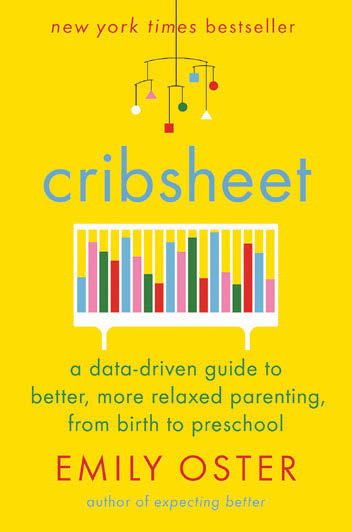
Evidence-Based Parenting
Cribsheet: A Data-Driven Guide to Better, More Relaxed Parenting, from Birth to Preschool, by Emily Oster, PhD, Penguin Press
In her first book, Expecting Better, Oster, a professor of economics at Brown and mother of two, delved into the data to help moms-to-be make decisions about their pregnancies. Now she’s applied that same evidence-based lens to early childhood so new parents can weigh their options on everything from breastfeeding to daycare to potty training.
There’s little in parenthood that’s clear-cut, and Oster stresses repeatedly that most choices are just that: choosing what works best, for baby and parent and family. Take co-sleeping, for example. Oster reviews the literature, suggests factors readers might consider, and explains what it means to minimize risk. For some parents, the benefits of bed sharing will outweigh the risks; this book arms them with the information they need to make that choice.
Cribsheet isn’t a data dump. Oster presents the numbers (and a few graphs and a decision tree) in an approachable, non-intimidating way. She gives weight to the recommendations of medical societies—as well as the advice of her pediatrician, who tells the bleary-eyed author as she spins with anxiety in her office: don’t worry so much. Sometimes, Oster writes, data need to take a back seat to being present and happy with the kids; “there will be many times that you need to just trust that if you’re doing your best, that’s all you can do.”


